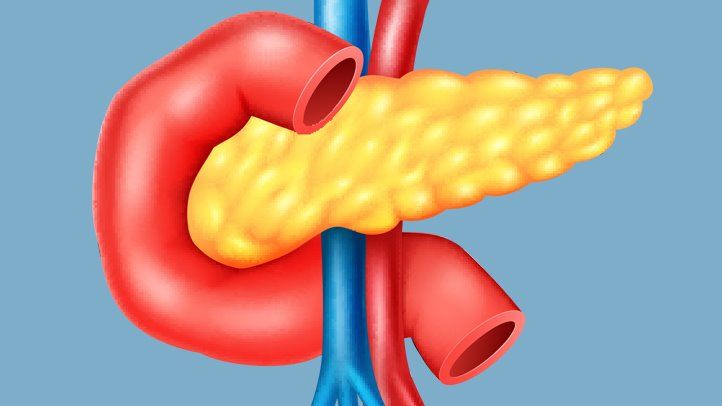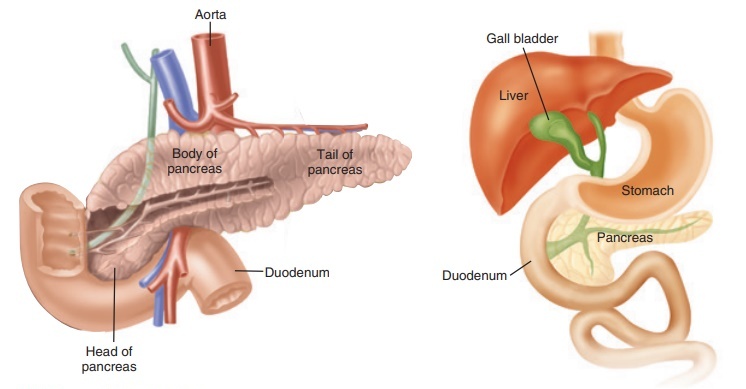
The pancreas plays an important role in the digestive process by producing enzymes that break down food into smaller molecules and by secreting hormones that regulate the metabolism of carbohydrates, fats and proteins. Pancreatic enzymes help to break down fats and proteins into smaller molecules that can be absorbed by the small intestine. Pancreatic hormones, such as insulin and glucagon, regulate the metabolism of carbohydrates, fats, and proteins. Insulin is necessary for glucose to be taken up from the blood and used for energy. Glucagon helps to break down stored glycogen into glucose for energy when needed. The pancreas also secretes a range of other hormones, such as somatostatin, which helps to regulate the digestive process.

